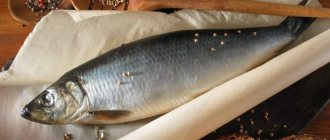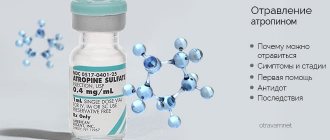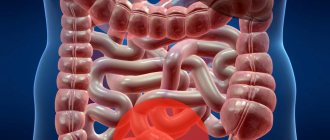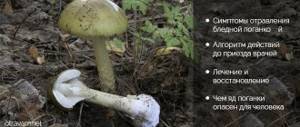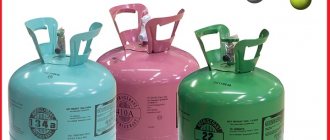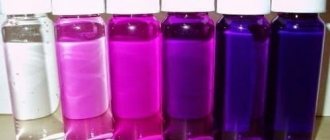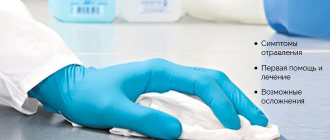Japanese cuisine is very popular, and every year it is gaining more and more fans around the world. Gourmets recognize sushi and rolls as its main delicacies. These dishes have already become traditional for domestic cafes and restaurants, and although the Japanese claim that real sushi and rolls are prepared exclusively from freshly caught fish and seafood, the domestic version of these dishes uses mainly fresh frozen products. It's hard to say how things are in Japan, but poisoning from rolls and sushi is by no means uncommon here - so much so that some people are even afraid to try them.
Source: depositphotos.com
What is it, is poisoning possible?
Sushi and rolls are traditional Japanese dishes. Sushi is boiled rice, which is formed into small neat lumps. Pieces of fish are placed on top of them, and it is also possible to use caviar or seaweed. Additionally, sushi can be placed in strips of seaweed so that they keep their shape well.
The ingredients of the rolls are similar to sushi, but they are rolls wrapped in seaweed. The rolls are cut into small pieces. In addition to rice, fish and seaweed, one roll may contain other ingredients such as caviar and cream cheese.
Is it possible to get poisoned by Japanese cuisine made from fresh fish and boiled rice? Yes, this is quite possible if the basic rules for storing raw materials or the technology for preparing the dish are not followed.
How does poisoning occur?
Naturally, in elite restaurants, where professional chefs do the cooking, the risk of getting intoxicated is much lower than in an ordinary establishment with average prices.
It is important to remember that sushi and rolls are consumed only fresh. Before preparing dishes, cooks put seafood in special sauces that have antimicrobial activity. If this is not done, there is a high risk of intoxication.
Japanese cuisine must be eaten immediately! It is not recommended to leave them even for a couple of hours without refrigeration!
Another reason for poisoning in rolls or sushi is parasites living in fish meat. Sea fish is mainly used for cooking. There are much fewer parasites in it than in river water. Their number is also reduced by flash freezing, to which the entire catch must be subjected. If freezing does not occur, the parasites have time to lay their eggs in the muscle tissue of the fish, which hatch when they enter the human body, which will also lead to poisoning.
A rather rare, but still possible cause of intoxication is the content of heavy metal salts (especially mercury) in meat. To avoid poisoning, Japanese cuisine made from fresh fish is not recommended to be consumed more than several times a month.
Why can you get poisoned by sushi and rolls?
Most often, sushi poisoning occurs due to the fault of its manufacturers. That is why the causes of poisoning include :
- Violation of sanitary and hygienic norms and rules . If a dish is prepared in a contaminated room and dirty utensils are used, then bacteria penetrate even high-quality products and they become dangerous to humans. Also, great importance should be given to checking personnel for carriage of infectious diseases (including intestinal pathologies);
- Violation of the rules and algorithm for making rolls and sushi;
- Use of low-quality seafood . They may be stale, spoiled, or contain bacteria, parasites and their eggs. Most often, salmonella, anisakids, and so on are found in seafood used in the preparation of these dishes. Low-quality fish is rich in heavy metals, which is also dangerous to human health;
- Eating stale food . Rolls and sushi are dishes that should only be eaten freshly prepared. The longer the time has passed since preparation, the more likely the development of intoxication.
When a low-quality product enters the body, significant changes occur in the digestive system. First of all, irritation of the mucous membrane of the gastrointestinal tract occurs, as bacteria strive to penetrate through it into the bloodstream.
In case of poisoning, the body includes protective and compensatory mechanisms:
- Vomiting and diarrhea help cleanse the body of toxins;
- Hyperthermia (increased body temperature) helps to inhibit the activity and death of microbes that have entered the blood.
Symptoms
The signs of sushi or roll poisoning are no different from the symptoms of regular food poisoning. These include:
- fairly rapid deterioration of the condition (on average it takes from half an hour to two hours);
- complaints of nausea, weakness, general feeling of malaise;
- repeated vomiting appears, in which the contents of the stomach are first determined, and then only bile;
- severe diarrhea develops (liquid stool can have a color from the standard brown to green or yellow, pay special attention to black stool, as it may indicate the onset of internal bleeding);
- a temperature jump to high numbers (38 °C and above) is possible;
- Diuresis (the amount of urine excreted) decreases.
Possible consequences
If food poisoning is treated correctly after eating rolls, specific therapy will not be needed in the future. Diarrhea may be present as a result of intestinal inflammation, but it goes away quickly.
A complication of severe pathology and untimely assistance is liver or kidney failure.
First Aid Basics
What should you do first if you are poisoned by Japanese dishes made from fresh fish? You need to follow a simple algorithm:
- after drinking a large amount of liquid or a weak solution of potassium permanganate, press on the root of the tongue and induce vomiting (the procedure is repeated until the rinsing waters become clear);
- the victim is placed in bed and, if he has chills, covered with a warm blanket and given heating pads;
- the temperature is brought down with the help of antipyretics only if it rises above 38 °C;
- give enterosorbents (activated carbon, Enterosgel, Smecta, etc.);
- if your stomach hurts a lot, they offer painkillers (No-shpa, for example).
If poisoning from rolls or sushi occurs, the patient must be given the opportunity to fully rest. The victim should also drink plenty of fluids. You need to drink in small portions every 15-20 minutes.
When medical intervention is necessary, principles of therapy
Most often, signs of intoxication disappear quickly with proper first aid, and then professional intervention is not required. If symptoms persist or worsen and home treatment does not help, medical attention is required. Calling an ambulance is mandatory if:
- children, an elderly person or a pregnant woman were poisoned;
- More than 48 hours have passed and the symptoms have not disappeared;
- the patient complains of severe abdominal pain;
- the amount of urine excreted has decreased and it has acquired a brown color;
- blood or a large amount of mucous discharge is found in the stool;
- blood pressure decreased significantly.
In the hospital, the patient will have to undergo a series of tests and, based on their results, treatment will be selected. If pathogenic microflora is detected, doctors will prescribe antibacterial drugs. Antibiotics are selected depending on what pathogen is detected and what drug it is sensitive to. If helminths are detected in the feces, anthelmintics will be used.
Symptomatic therapy consists of restoring the water-salt balance using drugs for oral or infusion administration, as well as correcting blood pressure.
Have you ever been poisoned by rolls or sushi?
Poisoning during pregnancy
During pregnancy, most doctors recommend avoiding Japanese cuisine made from fresh fish. This is due to the fact that during the period of bearing a child, the female body becomes more susceptible to various pathogenic microorganisms and parasites, and infection occurs more easily. Ginger, wasabi and soy sauce served in addition to dishes can provoke an allergic reaction that can have a negative effect on the fetus.
But what to do if a pregnant woman really wants to taste Japanese cuisine? The recommendations are as follows:
- preference is given only to hot rolls and sushi;
- you can choose dishes that contain not fresh, but smoked fish or only vegetables;
- It is allowed to prepare sushi and rolls yourself if the woman is confident in the correct choice of ingredients.
If a pregnant woman is poisoned by sushi or rolls, treatment at home is unacceptable. It is necessary to call an ambulance with hospitalization in a hospital.
Treatment
When sushi is poisoned, the first sign of food intoxication is detected. It is recommended to take immediate first aid measures.
- Gastric lavage: use a solution based on potassium permanganate, colored in a pale shade of pink. Complete dissolution of the crystals of the substance will help to avoid damage to the mucous membrane of the esophagus. You will need to drink more fluid and provoke a gag reflex. You can replace the product with table salt or vegetable oil. It is not recommended to perform the procedure on young children and unconscious people.
- In case of poisoning, cleansing the intestines occurs using a traditional enema, and in addition, taking medications with a laxative effect. An alternative available remedy is vegetable oil (drink 1-2 tablespoons).
- Taking adsorbents that will collect harmful substances and remove them from the body. The toxic effect will be neutralized.
- You can eliminate the consequences of a lack of fluid with plenty of water or strong tea or herbal decoctions.
- To get rid of pain, take No-shpa.
- Taking medications like Mezim or Festal will help restore the activity of intestinal motility.
- Cover yourself with a warm blanket, lie down, and wait for the ambulance to arrive. It is better not to take medications without a doctor's prescription.
Sushi eaten in small quantities will cause minor disruption to the gastrointestinal tract. You will be able to cope with the problem yourself. If after poisoning it is possible to eliminate the symptoms, it is permissible not to call an ambulance.
There are several categories of people for whom treatment in a medical institution is recommended by specialists: women carrying a child, young children. Try to take into account a range of chronic diseases.
Health care
What to do if you are severely poisoned by a Japanese delicacy? Urgently contact the nearest medical facility. The duration of symptoms for more than 2 days, acute pain in the abdominal area, qualitative changes in the composition of feces, blood and urine will be a reason to seek help from doctors.
First, they will conduct a study, then prescribe the correct treatment. In case of food poisoning that contains pathogenic microorganisms, drugs with an antibacterial effect are prescribed. After detecting the presence of heavy metals in sushi (the risk of liver and kidney pathologies), they resort to the use of antidotes. General therapy is carried out using solutions.
Experts recommend following a diet, which is associated with residual inflammation in the intestines.
Treating the consequences
The traditional method of treatment is drugs with an adsorbing effect and for consolidating stool. Restore lost fluid by drinking 2-3 liters. per day containing 1 tsp. salt per 1 liter. water.
The first day you will have to adhere to the rules of an empty stomach. Then include in your diet food that gently envelops the intestinal mucosa. It is important to avoid fatty, fried, smoked and spicy foods.
Prevention methods
To avoid poisoning, it is recommended to follow a few simple rules. These include:
- careful selection of restaurants and cafes serving Japanese cuisine, visiting only trusted establishments with a good reputation;
- refusal to eat foods that have an unpleasant odor or strange appearance;
- washing hands thoroughly before eating;
- refusal of long-term storage of rolls and sushi, consumption of them on the day of purchase;
- when cooking at home, you must remember to carefully select ingredients and maintain cleanliness in the kitchen;
- It is necessary to check the expiration date of products purchased for cooking.
Sushi and rolls are tasty, but rather specific Japanese dishes, the consumption of which carries a risk of poisoning. Following simple preventive measures will help you avoid intoxication. If poisoning does occur, it is necessary to provide first aid to the victim in a timely manner!
The most dangerous dishes
The product's name
What hazardous substances appear during cooking?
Shawarma, hot dog, pasties, hamburger, pizza Trans fats, cholesterol, empty carbohydrates, coli bacteria.
French fries Dextrose, sodium acid pyrophosphate, dimethylpolysiloxane, tert-butylhydroquinone.
Noodles Monosodium glutamate, sodium benzoate, potassium sorbate.
Chips Trans isomers of fatty acids, propenamide, carcinogen, mutagen, technical fat.
3


